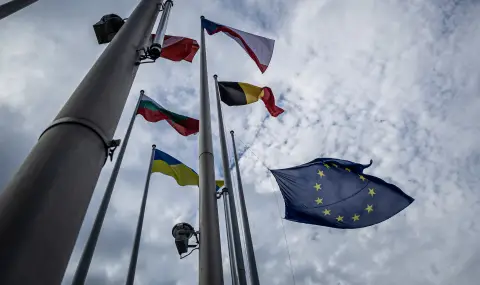The European Union plans to force Chinese companies to transfer intellectual property to European firms in exchange for EU subsidies as part of a tougher trade regime for clean technologies, the Financial Times reported, citing two high-ranking EU officials, as quoted by News.bg.
According to officials, the new measures will be introduced in December, when Brussels will make offers for €1 billion in grants for battery development. The measures require Chinese businesses to have factories in Europe and share technological know-how, and are part of the EU's tougher stance on China as it seeks to protect companies in the bloc that are subject to strict environmental regulations.
The pilot project can be applied to other EU subsidy schemes.
Last month, the EC introduced tariffs of up to **35% on Chinese electric vehicles on top of the existing 10% tax.
People close to US President-elect Donald Trump said he would pressure the EU to follow suit and erect more barriers to Chinese goods and investment.
If Trump goes ahead with his threat of 60 percent tariffs on Chinese exports, then Beijing is likely to try to target other regions such as the EU, which will also seek measures to stop large Chinese imports.
p>
But the move also comes amid growing concern about the weakness of the EU economy and the ability of companies to meet ambitious climate targets without relying on cheap imports.
In May, Brussels adopted legislation with domestic production targets aimed at promoting clean technologies.
Increased controls on Chinese technology imports have already spurred companies such as China's CATL, the world's largest technology manufacturer, to set up so-called gigafactories in Europe. The company has invested billions of euros in factories in Hungary and Germany. Shanghai-based Envision Energy is also investing hundreds of millions of euros in facilities in Spain and France.
But in a closed-door meeting earlier this year, China's Ministry of Commerce warned domestic carmakers against making major investments in Europe and advised them to set up production lines on the mainland only for the final assembly step. and the reason for this warning is the political uncertainty in Brussels.
Meanwhile, Europe's biggest battery maker, Sweden's Northvolt, is facing bankruptcy as it struggles to ramp up production.
Batteries form a significant part of electric vehicles, accounting for more than a third of costs, making battery supply chains critical for the European car industry as it tries to transition to less polluting models.
